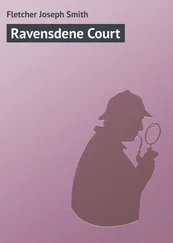Joseph Fletcher - Mr. Poskitt's Nightcaps. Stories of a Yorkshire Farmer
Здесь есть возможность читать онлайн «Joseph Fletcher - Mr. Poskitt's Nightcaps. Stories of a Yorkshire Farmer» — ознакомительный отрывок электронной книги совершенно бесплатно, а после прочтения отрывка купить полную версию. В некоторых случаях можно слушать аудио, скачать через торрент в формате fb2 и присутствует краткое содержание. Издательство: Иностранный паблик, Жанр: foreign_prose, foreign_language, на английском языке. Описание произведения, (предисловие) а так же отзывы посетителей доступны на портале библиотеки ЛибКат.
- Название:Mr. Poskitt's Nightcaps. Stories of a Yorkshire Farmer
- Автор:
- Издательство:Иностранный паблик
- Жанр:
- Год:неизвестен
- ISBN:нет данных
- Рейтинг книги:3 / 5. Голосов: 1
-
Избранное:Добавить в избранное
- Отзывы:
-
Ваша оценка:
- 60
- 1
- 2
- 3
- 4
- 5
Mr. Poskitt's Nightcaps. Stories of a Yorkshire Farmer: краткое содержание, описание и аннотация
Предлагаем к чтению аннотацию, описание, краткое содержание или предисловие (зависит от того, что написал сам автор книги «Mr. Poskitt's Nightcaps. Stories of a Yorkshire Farmer»). Если вы не нашли необходимую информацию о книге — напишите в комментариях, мы постараемся отыскать её.
Mr. Poskitt's Nightcaps. Stories of a Yorkshire Farmer — читать онлайн ознакомительный отрывок
Ниже представлен текст книги, разбитый по страницам. Система сохранения места последней прочитанной страницы, позволяет с удобством читать онлайн бесплатно книгу «Mr. Poskitt's Nightcaps. Stories of a Yorkshire Farmer», без необходимости каждый раз заново искать на чём Вы остановились. Поставьте закладку, и сможете в любой момент перейти на страницу, на которой закончили чтение.
Интервал:
Закладка:
"It'll benefit him and it'll benefit me," he mused, as he went homeward, smoking a two-penny cigar which the small farmer had pressed upon him in the fulness of his gratitude. "And if that isn't as things ought to be, well, then I'm a Dutchman!"
Next day, as Miss Lavinia sat in her morning-room, going through the weekly accounts, the parlour-maid announced the arrival of a person who said he had come about the pig. Miss Lavinia looked dubiously at the spotlessness of the linen carpet-cover, and asked the parlour-maid if the person's boots seemed clean. As it happened to be a bright frosty morning the parlour-maid considered the person suitable for admittance and brought him in – a shifty-eyed man with a shock of red hair who ducked and scraped at Miss Lavinia as if he experienced a strange joy in meeting her.
"So you have come about the pig which I found!" said Miss Lavinia pleasantly. "You must have been very sorry to lose it."
The caller elevated his eyes to the ceiling, examined it carefully, and then contemplated the inside of his old hat.
"I were sorry, mum," he said. "It were a vallyble animal, that there, mum – it's a well-bred 'un."
"But it was so thin and – and dirty, when it came to me," said Miss Lavinia with emphasis. "Painfully thin, and so very, very dirty. My gardener was obliged to wash it with hot water."
The man scratched his head, and then shook it.
"Ah, I dessay, mum!" he said. "Of course, when a pig strays away from its proper home it's like a man as goes on the tramp – it don't give no right attention to itself. Now, when I had it, ah! – well, it were a picture, and no mistake."
"You shall see it now," said Miss Lavinia, who felt the caller's last words to contain something of a challenge. "You will see we have not neglected it while it has been here."
She led the way out to the stable-yard or to the sty, where the pampered pig was revelling in the best wheat straw and enjoying a leisurely breakfast – even Miss Lavinia had noticed that now that it was certain of its meals, and as many of them as it desired, it ate them with a lordly unconcern. It looked up – the man with the red hair looked down. And he suddenly started with surprise and breathed out a sharp whistle.
"Yes, mum!" he said with conviction. "That's my pig – I know it as well as I know my own wife."
"Then, of course, you must have it," said Miss Lavinia. There was a touch of regret in her voice – the pig had already become a feature of the stable-yard, and she believed that he knew his benefactress. "I suppose," she continued, "that you have many pigs?"
"A goodish few on 'em, mum," replied the man.
"Would you – I thought, perhaps, that as you have others, and this one seems to have settled down here, you might be inclined to – in fact, to sell him to me?" said Miss Lavinia hurriedly.
The red-haired person once more scratched his head.
"Well, of course, mum, pigs is for selling purposes," he said. "But that there pig, he's an uncommon fine breed. What would you be for giving for him, mum, just as he stands?"
At this moment the pig, full of food and entirely happy, gave several grunts of satisfaction and begun to rub its snout against the door of the sty. Miss Lavinia made up her mind.
"Would you consider ten pounds a suitable sum?" she asked timidly.
The red-haired man turned his head away as if to consider this proposal in private. When he faced round again his face was very solemn.
"Well, of course, mum," he said, "of course, as I said, he's a vallyble animal is that there, but as you've fed him since he were found and have a liking to him – well, we'll say ten pounds, mum, and there it is!"
"Then if you will come into the house I will give you the money," said Miss Lavinia. "And you may rest assured we shall treat the pig well."
"I'm sure of that, mum," said the seller. "And very pretty eating you'll find him when his time comes."
Then he got his money, and drank a jug of ale, and went away, rejoicing greatly, and on his way home he met Mitchell, who had been to the market-town in the light cart, and who pulled up by the road-side at sight of him.
The red-haired man winked knowingly at the gardener.
"Well?" said Mitchell.
"All right," answered the other. He winked again.
Mitchell began to look uneasy.
"Where's the pig?" he asked.
"Where I found it," answered the red-haired man. "In the sty."
"Why didn't you bring it away?" asked Mitchell. "You said you would."
The red-haired man again winked and smiled widely.
"I've sold it," he said. "Sold it to your missis. For ten pounds."
He slapped his pocket and Mitchell heard the sovereigns jingle. He almost fell out of his seat.
"Sold it! – to our missis! – for ten pounds!" he exclaimed. "You – why, it weren't yours to sell!"
"Weren't it?" said the red-haired man. "Well, there you're wrong, Mestur Mitchell, 'cause it were. I knew it as soon as I set eyes on it, 'cause it had a mark in its left ear that I gave it myself. And as your missis had taken a fancy to it and bid me ten pound for it, why, of course, I took her at her word. Howsumever," he concluded, putting his hand in his pocket, "as you put me on to the matter, I'll none be unneighbourly, and I'll do the handsome by you."
Therewith he laid half-a-crown on the splashboard of the light cart, winked again, and with a cheery farewell strode away, leaving the disgusted gardener staring at the scant reward of his schemings.
CHAPTER III
THE MAN WHO WAS NOBODY
I
That was one of the finest of all the fine mornings of that wonderful spring, and Miriam Weere, when she saw the sunlight falling across the orchard in front of her cottage, and heard the swirl of the brown river mingling with the murmur of the bees in their hives under the apple-trees, determined to do her day's work out of doors. The day's work was the washing of the week's soiled linen, and no great task for a strapping young woman of five-and-twenty, whose arms were as muscular as her gipsy-coloured face was handsome. Miriam accordingly made no haste in beginning it – besides, there was the eighteen-months-old baby to wash and dress and feed. He woke out of a morning sleep as she finished her breakfast, and began to make loud demands upon her. She busied herself with him for the next hour, laughing to herself gleefully over his resemblance to his father, big blue-eyed, blonde-haired Michael; and then, carrying him out to the daisy-spangled grass of the orchard, she set him down beneath an apple-tree, and left him grasping at the white and gold and green about him while she set out her wash-tubs a few yards away.
Miriam Weere had never a care in the world. Her glossy hair, dark as the plumage on a rook's breast, her clear hazel eyes, her glowing cheeks, the round, full curves of her fine figure, combined with the quickness and activity of her movements to prove her in possession of rude and splendid health. There was only another human being in Ashdale who could compete with her in the appearance of health or in good looks – her husband, Michael, a giant of well over six feet, who, like herself, had never known what it was to have a day's illness. The life of these two in their cottage by the little Ash was one perpetual round of good humour, good appetite, and sound sleep. Nor was there any reason why they should take thought for the morrow – that is, unduly. Higher up the valley, set on a green plateau by the bank of the river, stood Ashdale Mill, between the upper and nether stones of which most of the grain grown in the neighbourhood passed. And Ashdale Mill was the property of Tobias Weere, Michael's father, who was well known to be a rich man, and some day Michael would have —
That was the only question which occasionally made Miriam knit her brows. What would Michael have when old Tobias died? The mill, the mill-house, the garden and orchard around it, two or three acres of land beside, and the fishing rights of the river from Ashdale Bridge to Brinford Meadows belonged absolutely to Tobias, who had bought the freehold of this desirable property when he purchased the good-will of the business twenty years before. He had only two sons to succeed to whatever he left – Michael and Stephen. Michael was now general superintendent, manager, traveller, a hard indefatigable worker, who was as ready to give a hand with the grain and the flour as to write the letters and keep the books. Stephen, on the other hand, was a loafer. He was fonder of the village inn than of the mill, and of going off to race meetings or cricket matches than of attending to business. He was also somewhat given to conviviality, which often degenerated into intemperance, and he had lately married the publican's daughter, a showy, flaunting wench whom Miriam thoroughly detested. Considering the difference that existed between the two brothers, it seemed to Miriam that it would be grossly unfair to share things equally between them, and more than once she had said so to Michael. But Michael always shook his head.
Читать дальшеИнтервал:
Закладка:
Похожие книги на «Mr. Poskitt's Nightcaps. Stories of a Yorkshire Farmer»
Представляем Вашему вниманию похожие книги на «Mr. Poskitt's Nightcaps. Stories of a Yorkshire Farmer» списком для выбора. Мы отобрали схожую по названию и смыслу литературу в надежде предоставить читателям больше вариантов отыскать новые, интересные, ещё непрочитанные произведения.
Обсуждение, отзывы о книге «Mr. Poskitt's Nightcaps. Stories of a Yorkshire Farmer» и просто собственные мнения читателей. Оставьте ваши комментарии, напишите, что Вы думаете о произведении, его смысле или главных героях. Укажите что конкретно понравилось, а что нет, и почему Вы так считаете.












